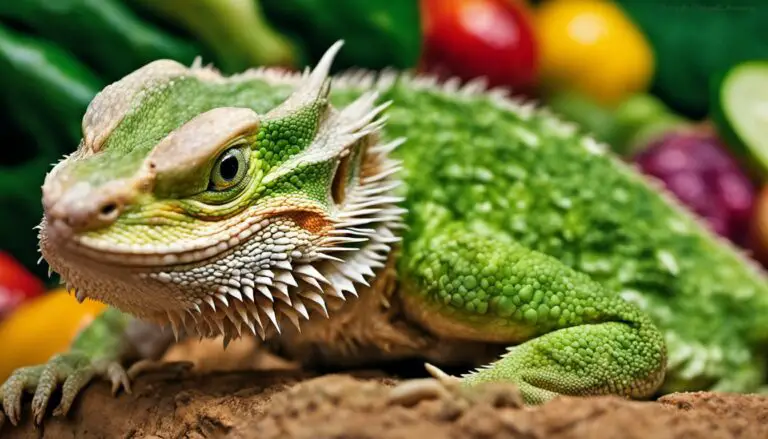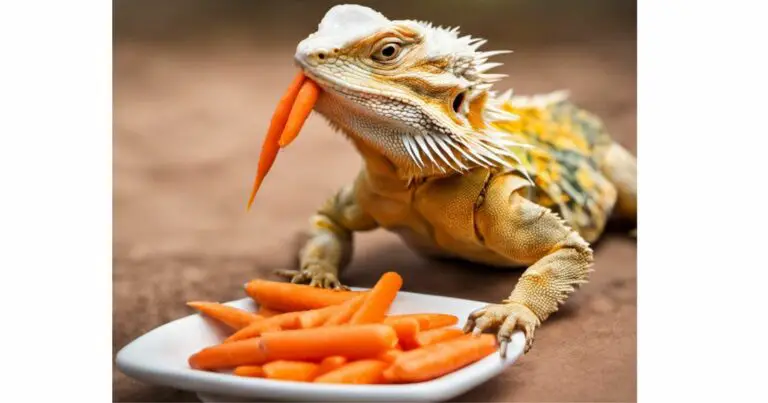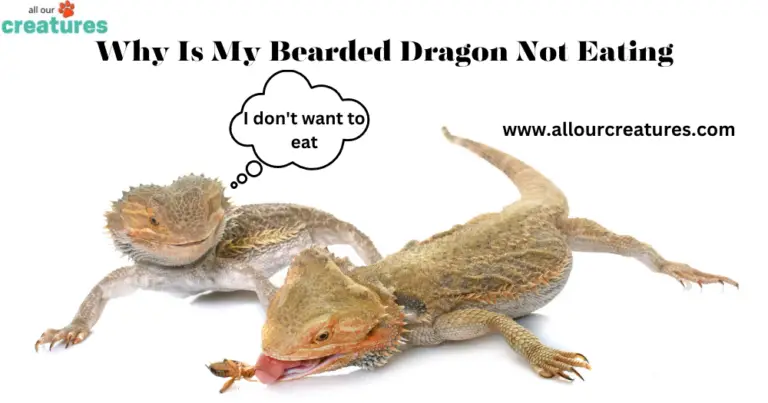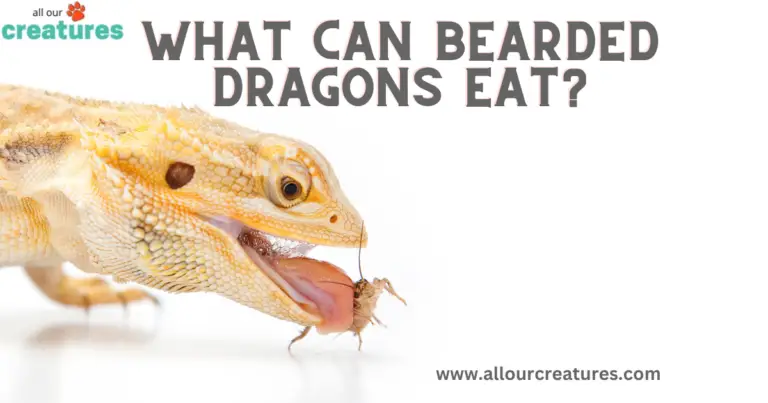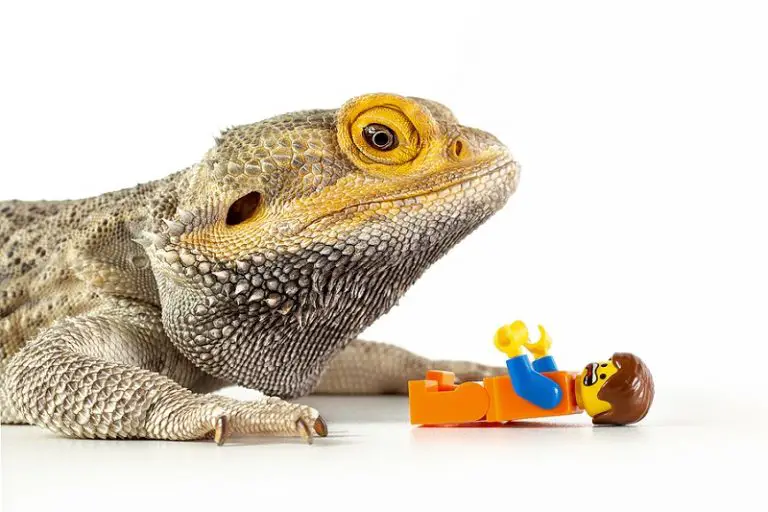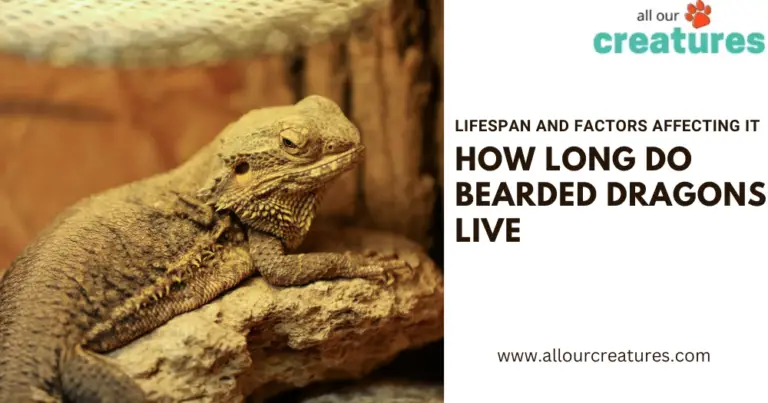Bearded Dragon Wax Worms Uncovered: The Ultimate Guide to Feeding Your Scaly BFF!
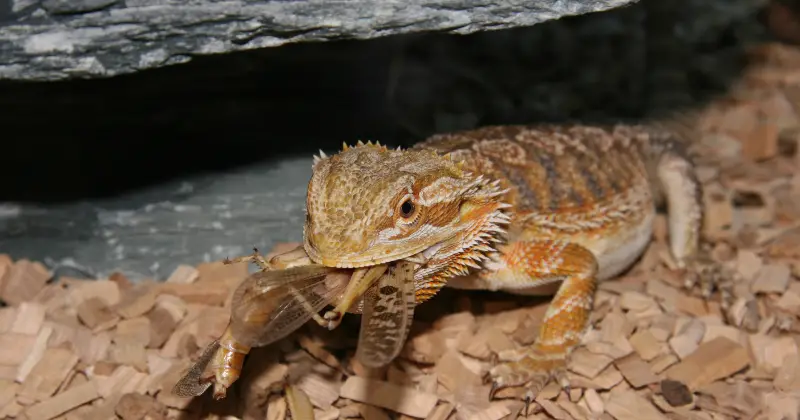
Bearded dragons are fascinating pets, known for their unique appearance and easygoing nature. Proper nutrition is essential for the health and happiness of your bearded dragon, and with so many options, it can be overwhelming to determine the best diet for your scaly friend. One of the foods that many bearded dragon owners consider is wax worms. In this comprehensive guide, we’ll explore the role of bearded dragon wax worms in your pet’s diet and provide essential tips for feeding and care.

Contents
Table of Contents
Can Bearded Dragons Eat Wax Worms?
Yes, bearded dragons can eat wax worms. Feeding bearded dragon wax worms can be a tasty treat for your scaly friend, but offering them in moderation is essential to maintain a balanced and nutritious diet.
Understanding Bearded Dragon Nutrition
The key to a healthy bearded dragon diet is variety and balance. Bearded dragons are omnivorous creatures, requiring a balanced diet of both plant-based and animal-based food sources to meet their nutritional needs. While young bearded dragons need a diet higher in protein (in the form of insects) to support their rapid growth, adult bearded dragons require a higher percentage of plant-based foods, including vegetables, greens, and fruits.
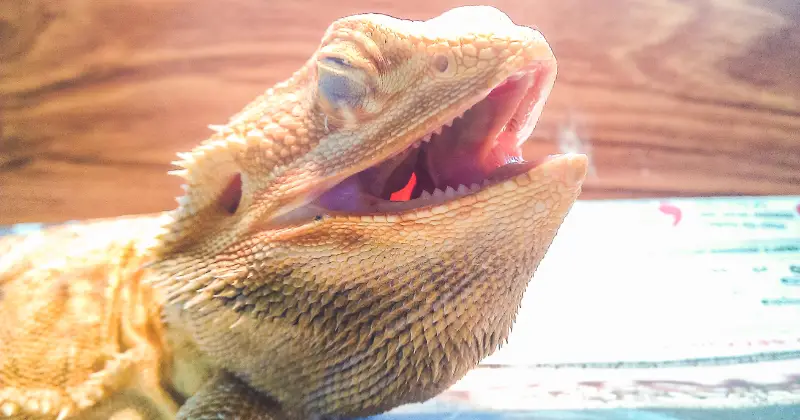
Bearded Dragon Wax Worms: The Pros and Cons
Wax worms are the larval stage of the wax moth and are often used as feeder insects for reptiles, birds, and fish. They are soft-bodied, easy to digest, and high in fat, making them an appealing choice for many bearded dragon owners. However, it’s essential to understand the pros and cons of feeding bearded dragon wax worms before including them in your pet’s diet.
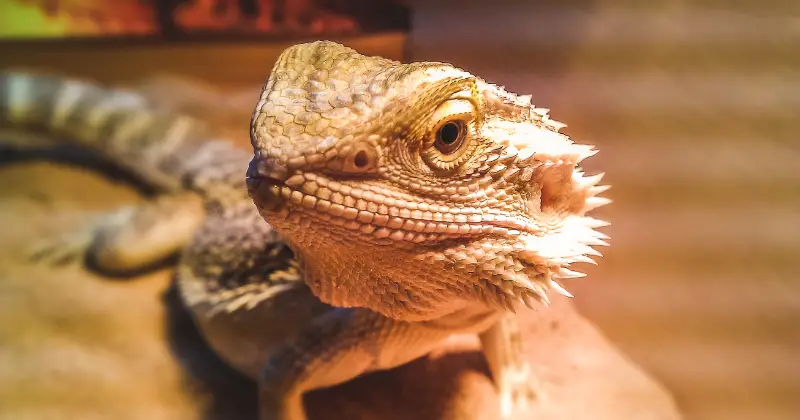
The Benefits of Wax Worms
Wax worms offer several benefits as a part of a bearded dragon’s diet:
High-fat content:
Wax worms contain approximately 20-24% fat, which can benefit bearded dragons that need to gain weight or during high-energy demands, such as breeding season.
Soft-bodied:
Wax worms are easy for bearded dragons to chew and digest, reducing the risk of impaction, which can occur when feeding harder-shelled insects.
Palatability:
Bearded dragons typically find wax worms a tasty treat, making them an enticing option for picky eaters or to encourage appetite.
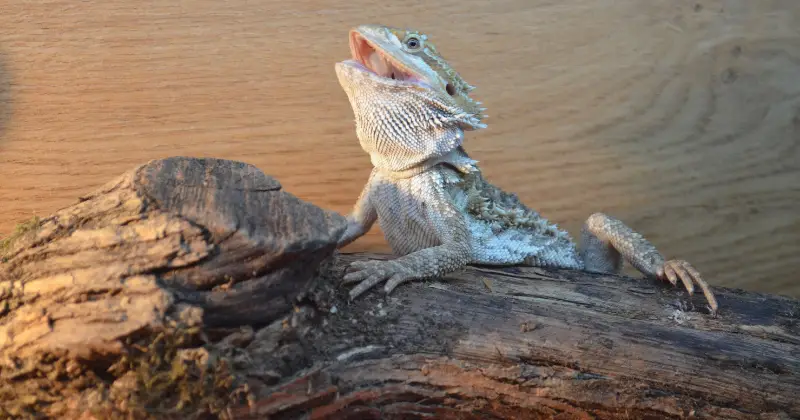
The Drawbacks of Wax Worms
Despite their benefits, there are some potential drawbacks to feeding wax worms to your bearded dragon:
Low nutritional value:
Wax worms are high in fat but low in protein, calcium, and other essential nutrients required by bearded dragons for optimal health.
Risk of obesity:
The high-fat content of wax worms can lead to obesity if fed too frequently, which can cause serious health issues for your bearded dragon.
Addiction:
Bearded dragons may become addicted to the taste of wax worms, refusing to eat other, more nutritious food items.
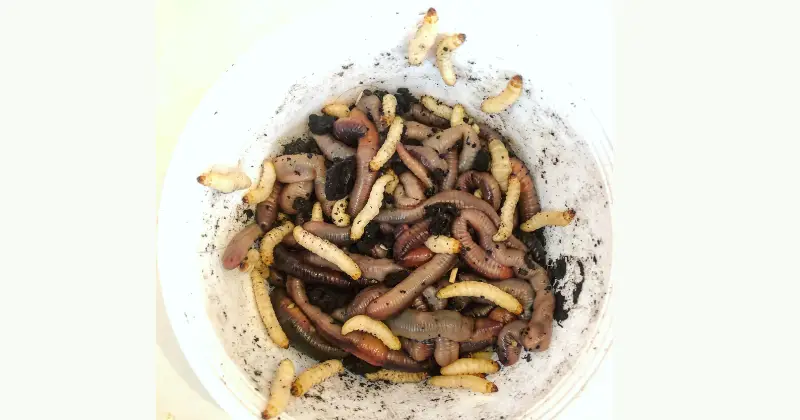
Feeding Bearded Dragon Wax Worms: How and When
Considering the pros and cons of wax worms, they can be fed to your bearded dragon but should be offered only as an occasional treat. When feeding bearded dragon wax worms, follow these guidelines:
Quantity:
Depending on your bearded dragon’s size and age, offer only a few wax worms per feeding. Younger dragons may benefit from a slightly higher quantity, while older dragons should receive fewer wax worms.
Frequency:
Feed wax worms no more than once a week for adult bearded dragons and no more than twice a week for juveniles.
Gut-loading:
To improve the nutritional value of wax worms, gut-load them with nutrient-dense foods before feeding them to your bearded dragon.
This process involves feeding the wax worms a high-quality diet that will, in turn, be passed on to your bearded dragon when they consume the worms.
Dusting:
In addition to gut-loading, you can dust wax worms with calcium or vitamin supplements before feeding them to your bearded dragon. This can help ensure your pet receives the necessary nutrients for optimal health.
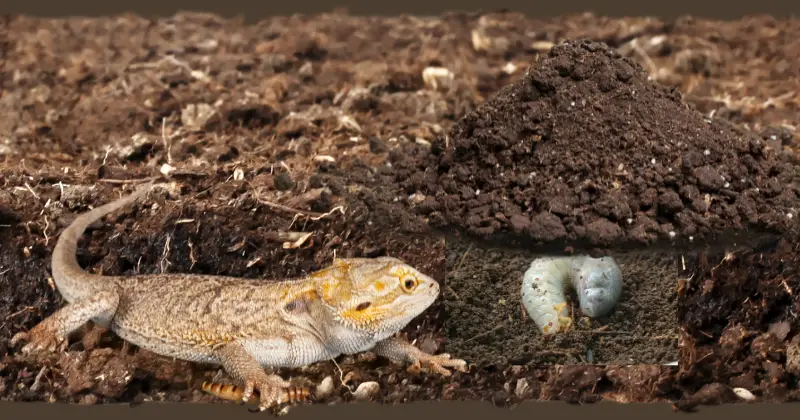
You might like to watch this video: Bearded Dragons Vs WAX WORMS !!! Quarantine Treats !!
Other Insects to Feed Your Bearded Dragon
While wax worms can be a tasty treat, providing your bearded dragon with various insects is essential to ensure a well-rounded and balanced diet. Some other insects to consider as part of your bearded dragon’s diet include:
Crickets:
A staple feeder insect for bearded dragons, crickets are high in protein and readily available. They should be gut-loaded and dusted with supplements before feeding.
Dubia roaches:
A nutritious alternative to crickets, dubia roaches are high in protein and have a softer exoskeleton, making them easier to digest.
Mealworms:
Another popular option, mealworms, are high in protein but have a harder exoskeleton, which can pose a risk of impaction for bearded dragons. They should be offered in moderation, especially to younger dragons.
Hornworms:
These soft-bodied worms are high in moisture and can serve as a hydrating treat for bearded dragons. They should be fed in moderation due to their low protein content.
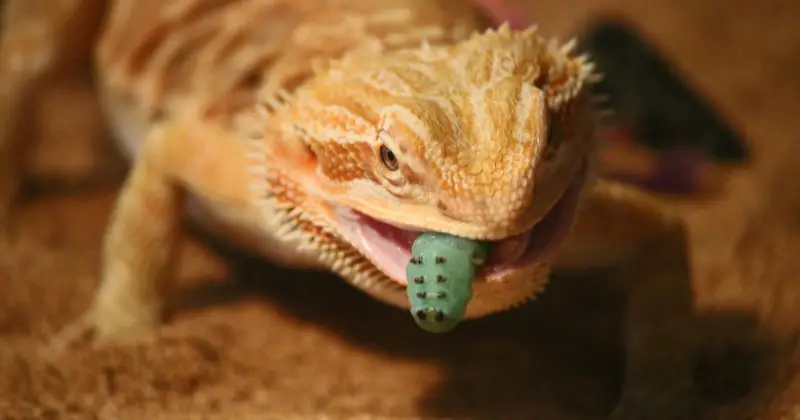
Plant-Based Foods for Bearded Dragons
In addition to insects, bearded dragons require plant-based foods to maintain a balanced diet. Vegetables, leafy greens, and fruits should comprise a significant portion of an adult bearded dragon’s diet. Some excellent plant-based options for your bearded dragon include:
Leafy greens:
Collard greens, dandelion greens, mustard greens, and turnip greens are all nutrient-dense options for your bearded dragon.
Vegetables:
Bell peppers, squash, and carrots can add variety and important nutrients to your bearded dragon’s diet.
Fruits:
Offer sparingly fruits such as berries, apples, and melons as a treat, as they can be high in sugar.
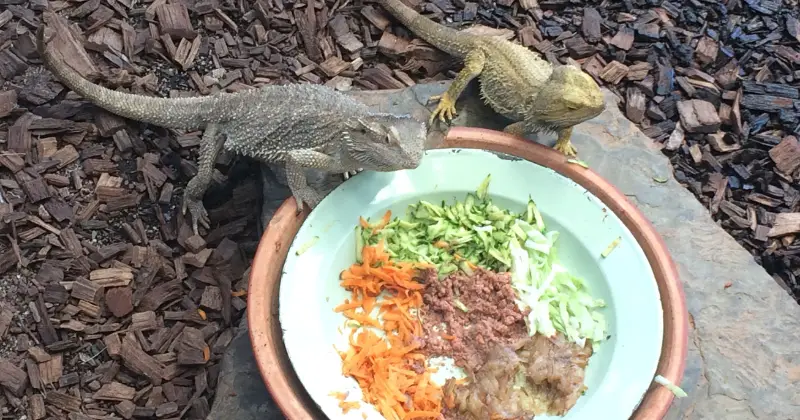
Monitoring Your Bearded Dragon’s Health
Regularly monitor your bearded dragon’s health and adjust its diet as needed. Ensure they maintain a healthy weight, have a strong appetite, and display normal behavior. Consult with a veterinarian specializing in reptiles if you have concerns about your bearded dragon’s health, weight, or diet.
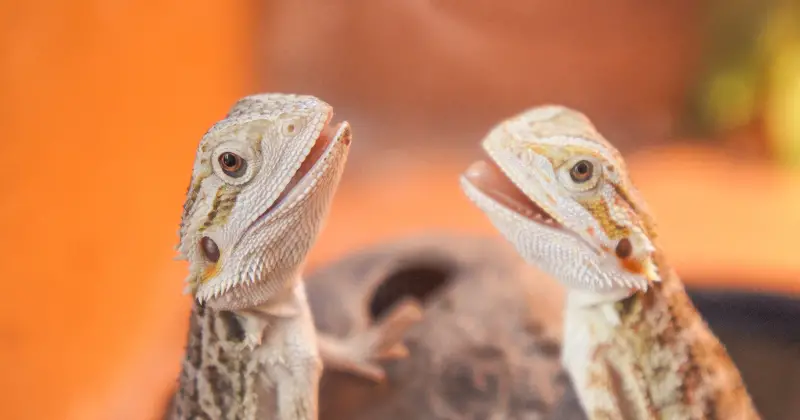
Conclusion:
Feeding bearded dragon wax worms can be a tasty treat for your scaly friend, but offering them in moderation is essential to maintain a balanced and nutritious diet. You can ensure their overall health and happiness by providing your bearded dragon with various insects and plant-based foods.
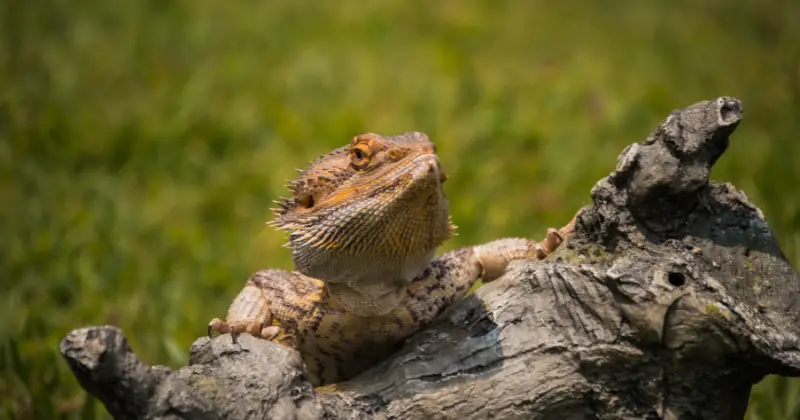
Don’t forget to consult a veterinarian if you have concerns about your bearded dragon’s diet or health, and enjoy the wonderful experience of caring for these amazing creatures.

